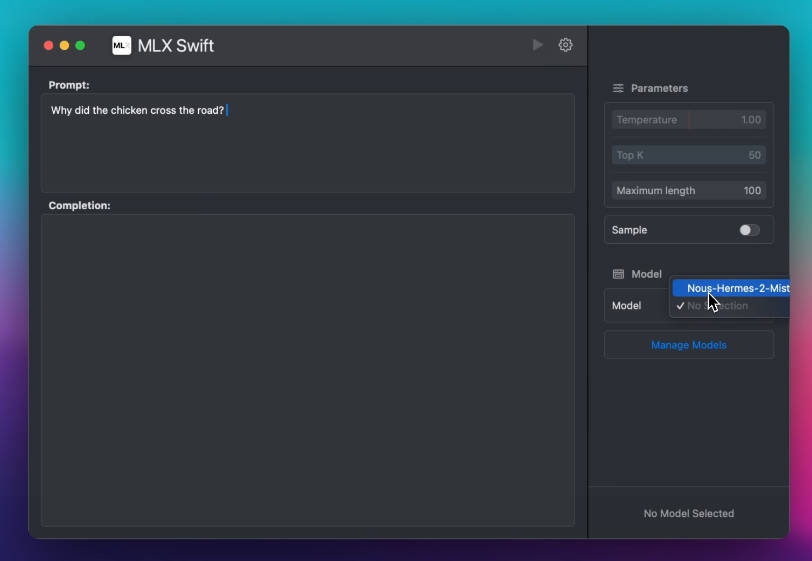Project
Structure
- OpenWeather
- App: SwiftUI App and Views
- Data
- Mock: Static mock data and json reading functionality.
- Network: Network data models used in Services and Adapters.
- Adapters: Objects that can convert from Network to Device or Device to Network models.
- JSON: Network data model JSON files.
- Device: Device data models used in SwiftUI Views and ViewModels. Device models should be created from Network models by using Adapters.
- FileStorage: Local storage functionality.
- Navigation: SwiftUI NavigationPath using an object called CartographyPath and CartographyView. There is also the ability to present toasts, alerts, modals, and action sheets using the CartographyPath.
- Networking: Networking functionality.
- Notifications: Local Notification functionality.
- Persistence
- Caching
- Image: Memory storage for Images, used in ImageView.
- Data: Memory storage for anything conforming to DataCaching.
- Caching
- Preview Content
- Settings: Shared app data and state.
- Utilities: Miscellaneous app utilities.
- OpenWeatherTests
- Adapters: Test Network to Device and Device to Network transformations.
- Persistence: Tests for Persistence and Caching.
- UserRegistration: Tests for register using ViewModels and DI.
- Validation: Tests for different types of data validation.
Dependency List
- OpenBytes o
- Allows us to get the input and set the output of file, url, the console, and UserNotifications.
- OpenBytes c
- Allows us to transform types from one to another while also providing us the various caching options.
- Fork
- Fork allows us to run multiple asynchronous tasks at the same time.
Getting Started
Installing development dependencies
- Install Homebrew
- Run
brew bundle
Learn more about Swish and Xcodegen
Renaming
There are some scripts to help rename OpenWeather to whatever project name you want.
- Clone the templated repository
- run
./rename.sh - Enter a project name
Continuing onward
Regenerate the project
swish xcodeproj
Pushing to the App Store
This script expects APPLE_TEAM_ID, APPLOADER_USERNAME and APPLOADER_PASSWORD to be present in the environment.
It doesn’t have to stay that way. Modify Swish/Sources/appstore/Secrets.swift to use an API key, or perhaps fetch credentials from a password manager like 1Password using Sh1Password.
When that’s settled, you can run
swish appstore









